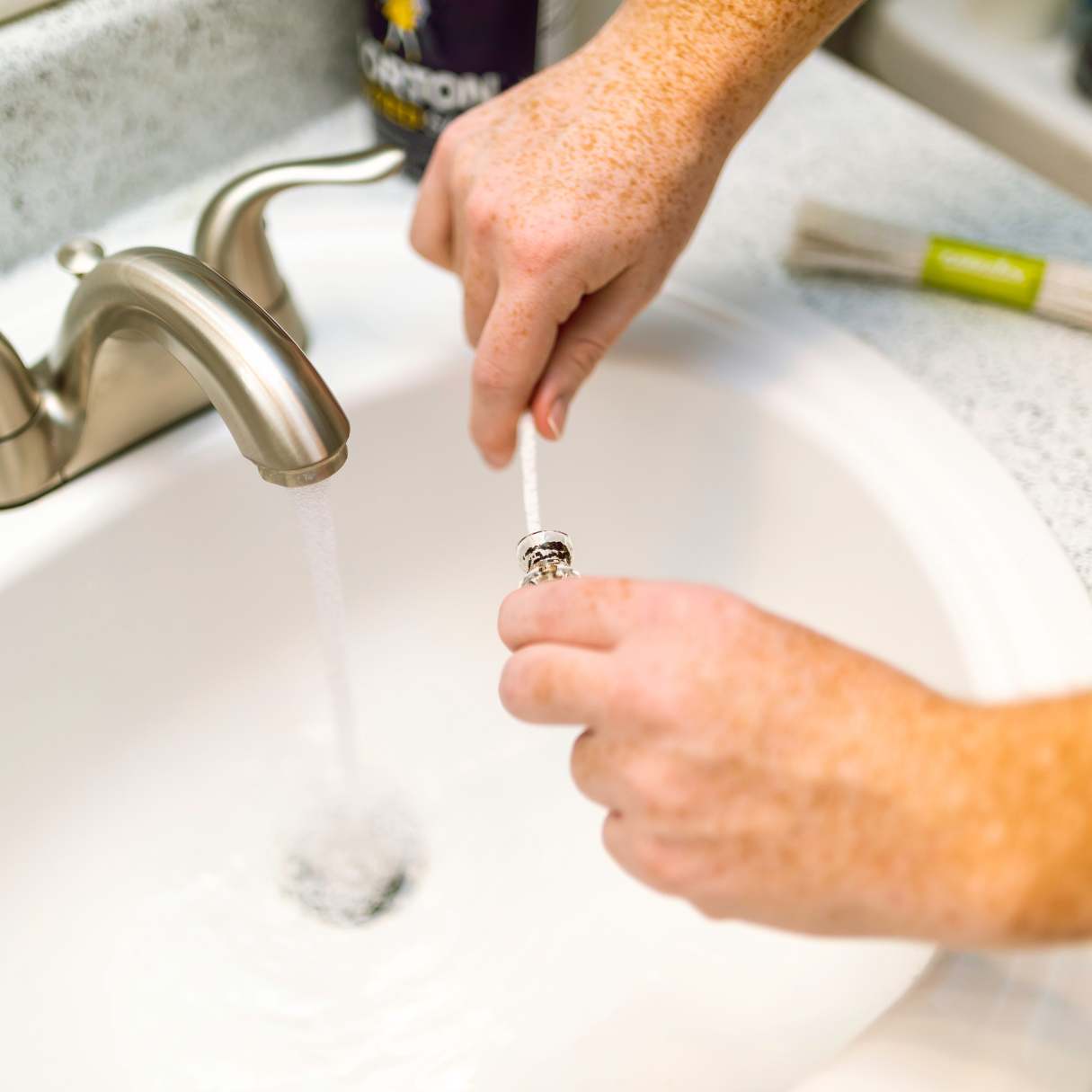

Articles
How To Clean Plumbing Pipes
Modified: August 16, 2024
Learn effective techniques and tips for cleaning plumbing pipes with our articles. Keep your pipes clear and functioning properly to avoid costly repairs.
(Many of the links in this article redirect to a specific reviewed product. Your purchase of these products through affiliate links helps to generate commission for Storables.com, at no extra cost. Learn more)
Introduction
Plumbing pipes play a crucial role in our homes, ensuring the smooth flow of water and the efficient functioning of our drainage systems. However, over time, these pipes can accumulate various forms of debris, including grease, soap scum, hair, and mineral deposits, which can lead to clogs, reduced water flow, and even pipe damage. Regular cleaning of plumbing pipes is essential to maintain a healthy and efficient plumbing system.
Cleaning plumbing pipes not only helps to improve water flow and prevent blockages, but it also enhances the overall performance and lifespan of the plumbing system. By removing accumulated debris and maintaining cleanliness, you can minimize the risk of pipe leaks and costly repairs in the future.
In this comprehensive guide, we will explore the importance of cleaning plumbing pipes, common signs of dirty pipes, and various methods of cleaning pipes using chemical solutions and natural remedies. We will also provide prevention tips to help you keep your plumbing pipes clean and functional for years to come.
Whether you are a homeowner looking to maintain your plumbing system or a DIY enthusiast eager to learn new skills, this article is here to guide you through the process of cleaning plumbing pipes effectively and efficiently. So, let’s dive in and discover how to keep your plumbing pipes in tip-top shape!
Key Takeaways:
- Regular cleaning of plumbing pipes is crucial to prevent clogs, improve water flow, enhance water quality, and extend the lifespan of the pipes, ensuring a reliable and efficient plumbing system for years to come.
- Identifying common signs of dirty plumbing pipes and implementing preventive measures such as proper waste disposal, regular maintenance, and professional inspections are essential for maintaining clean and efficient plumbing pipes.
Read more: How To Insulate Plumbing Pipes
Understanding the Importance of Cleaning Plumbing Pipes
Regular cleaning of plumbing pipes is often overlooked by homeowners, but it is an essential maintenance task that should not be ignored. Clean plumbing pipes are vital for the proper functioning of your plumbing system, and neglecting their maintenance can lead to a range of problems.
One of the main reasons why cleaning plumbing pipes is important is to prevent clogs and blockages. Over time, debris such as grease, hair, soap scum, and even small objects can accumulate in the pipes, restricting water flow and causing blockages. These blockages can lead to slow drains, backups, and even burst pipes. By regularly cleaning the pipes, you can remove these obstructions and ensure smooth water flow throughout your plumbing system.
In addition to preventing clogs, cleaning plumbing pipes also helps to improve the overall performance of your plumbing system. When pipes are clean, water can flow freely and efficiently, ensuring that all fixtures receive an adequate supply of water. This allows for optimal performance of faucets, showers, toilets, and other plumbing appliances. Clean pipes also help to maintain proper water pressure, preventing issues such as weak showers or slow-filling toilets.
An often overlooked benefit of cleaning plumbing pipes is that it helps to improve the water quality in your home. Over time, contaminants such as bacteria, mold, and rust can accumulate in the pipes, affecting the taste and smell of your water. By regularly cleaning the pipes, you can remove these contaminants and ensure that the water flowing through your taps is clean and fresh.
Another important reason to clean plumbing pipes is to extend their lifespan. When pipes are clogged or neglected, they can become more susceptible to damage and corrosion. By keeping the pipes clean, you can prevent the buildup of corrosive materials and reduce the risk of leaks or pipe bursts. Regular maintenance and cleaning can significantly prolong the lifespan of your plumbing system, saving you from costly repairs or replacements in the future.
Overall, cleaning plumbing pipes is a necessary task to ensure the proper functioning, performance, and longevity of your plumbing system. It helps to prevent clogs, improve water flow, enhance water quality, and extend the lifespan of your pipes. By incorporating regular pipe cleaning into your home maintenance routine, you can avoid plumbing issues and enjoy a reliable and efficient plumbing system for years to come.
Common Signs of Dirty Plumbing Pipes
Identifying the signs of dirty plumbing pipes is crucial in determining when it’s time to clean them. Ignoring these signs can lead to further complications and potential damage to your plumbing system. Here are some of the most common signs that indicate your pipes are due for a cleaning:
1. Slow Draining
If you notice that water is draining slowly from your sinks, showers, or tubs, it may be an indication that your pipes are clogged. Over time, debris such as hair, soap scum, and grease can accumulate in the pipes, restricting water flow and causing drainage issues. Regular cleaning of the pipes can help maintain proper water flow and minimize the risk of blockages.
2. Foul Odors
Unpleasant odors emanating from your drains can be a sign of dirty plumbing pipes. Accumulation of organic matter in the pipes can lead to bacterial growth, resulting in foul-smelling drains. Cleaning the pipes will help eliminate the source of the odor and restore freshness to your plumbing system.
Read more: How To Replace Plumbing Pipes
3. Bubbling or Gurgling Noises
If you hear strange noises, such as bubbling or gurgling sounds, coming from your drains when water is flowing, it could indicate a buildup of debris in the pipes. These noises occur when air trapped in the clogged pipe tries to escape as water passes through. Cleaning the pipes will remove the blockage and eliminate these unsettling sounds.
4. Low Water Pressure
Reduced water pressure in your faucets or showerheads can be a result of dirty pipes. Mineral deposits, rust, and debris can accumulate and restrict the flow of water through the pipes, leading to low water pressure. Cleaning the pipes will help restore proper water pressure and improve the overall performance of your plumbing system.
5. Recurring Clogs
If you find yourself frequently dealing with clogged drains, even after attempting to clear them with drain cleaners or plungers, it may be a sign of dirty plumbing pipes. Stubborn clogs that keep reappearing are often caused by buildup and blockages deep within the pipes. Thorough cleaning of the pipes can help eliminate these persistent clogs.
By paying attention to these common signs, you can proactively determine when it’s time to clean your plumbing pipes. Regular maintenance and cleaning will ensure the proper functioning of your plumbing system, prevent blockages, and extend the lifespan of your pipes.
Gathering the Necessary Supplies
Before you embark on cleaning your plumbing pipes, it’s important to gather all the necessary supplies to ensure a smooth and effective cleaning process. Having the right tools and materials on hand will make the task easier and more efficient. Here’s a list of the essential supplies you’ll need:
Read more: How To Hide Plumbing Pipes
1. Protective Gear
It’s important to prioritize safety when working with cleaning agents and potentially dirty pipes. Make sure to have protective gear such as gloves, safety glasses, and a face mask to shield yourself from any chemicals or debris.
2. Plumbing Snake or Auger
A plumbing snake or auger is a flexible tool designed to clear clogs and remove debris from pipes. It consists of a long, coiled wire that can be inserted into the pipes and rotated to break up obstructions. Choose a snake or auger appropriate for the size of your pipes.
3. Plunger
A plunger is a versatile tool that can be used to clear minor clogs and blockages in drains and toilets. It creates suction and pressure, helping to dislodge debris. Ensure you have a plunger for sinks and a separate one for toilets.
4. Cleaning Solution
There are various chemical cleaning solutions available on the market specifically formulated for cleaning plumbing pipes. Look for a product that is safe for the type of pipes you have and effective in removing accumulated debris. Read and follow the instructions on the label carefully.
Read more: Which Plumbing Pipe Is The Best
5. Natural Remedies
If you prefer to go the natural route, gather supplies for natural remedies such as baking soda, vinegar, lemon juice, or a mixture of hot water and salt. These gentle yet effective solutions can help dissolve grease and grime in the pipes.
6. Bucket and Towels
Having a bucket and towels nearby is useful for catching any excess water and protecting your surroundings during the cleaning process. It’s important to contain any spills or leaks that may occur during the cleaning.
7. Pipe Brush or Cleaning Brush
A pipe brush or cleaning brush with stiff bristles can be helpful for scrubbing the interior of the pipes, especially if you are using a cleaning solution. Choose a brush that can reach the length and diameter of your pipes.
By gathering these essential supplies, you’ll be well-prepared to tackle the task of cleaning your plumbing pipes. Having everything you need at your disposal will save you time and ensure a successful cleaning process.
Preparing the Pipes for Cleaning
Before you begin the actual process of cleaning your plumbing pipes, it’s important to properly prepare the pipes to ensure the best results. Here are some steps to follow when preparing the pipes for cleaning:
Read more: What Is A Drain Pipe In Plumbing
1. Clear the Area
Start by clearing the area around the pipes that you’ll be working on. Remove any objects or obstacles that may obstruct your access to the pipes. This will give you a clear and safe workspace to carry out the cleaning process.
2. Turn Off the Water Supply
To prevent any accidental water damage or flooding during the cleaning process, it’s essential to turn off the water supply to the area you’ll be working on. Locate the main water valve or individual supply valves for the specific pipes you’ll be cleaning and shut them off.
3. Open the Faucets
Next, open the faucets connected to the pipes you’ll be cleaning. This will help relieve any built-up pressure in the pipes and allow excess water to drain out. Keep the faucets open throughout the cleaning process.
4. Remove Drain Covers
If you’re cleaning drain pipes, remove any drain covers or stoppers to gain access to the pipes. This will allow you to effectively clean the entire length of the pipe and remove any debris or buildup.
Read more: How To Measure Plumbing Pipe Size
5. Clear the P-Trap (If Applicable)
If you’re cleaning a sink or a trap, detach the P-trap, which is the curved pipe section under the sink. Place a bucket underneath to catch any water or debris that may spill out. Inspect the P-trap for any clogs or buildup and clean it separately if necessary.
6. Protect Surroundings
Depending on the cleaning method you’ll be using, it’s important to protect the surrounding area from spills and splashes. Use towels or plastic sheets to cover nearby surfaces and prevent any damage or staining.
7. Follow Safety Precautions
Lastly, make sure to follow safety precautions when working with cleaning solutions or tools. Wear gloves, safety glasses, and a face mask to protect yourself from any potential chemicals or debris.
By thoroughly preparing the pipes for cleaning, you’ll create an optimal environment for effective cleaning and minimize the risk of any accidents or mishaps. Taking these steps will ensure a smoother and more successful cleaning process.
Using Chemical Solutions to Clean Plumbing Pipes
Chemical solutions can be an effective method for cleaning plumbing pipes, especially when dealing with tough clogs and stubborn debris. Here are the steps to follow when using chemical solutions to clean your pipes:
Read more: How To Flush Out Plumbing Pipes
1. Choose the Right Chemical Cleaner
There are various chemical cleaners available on the market specifically designed for cleaning plumbing pipes. Look for a product that is suitable for your type of pipes and effective in removing the type of buildup you’re dealing with, such as grease, hair, or mineral deposits.
2. Read and Follow the Instructions
Carefully read the instructions on the chemical cleaner’s packaging before use. Pay attention to any safety precautions, recommended dilution ratios, and specific instructions for your type of pipes. Follow these instructions closely to ensure a safe and effective cleaning process.
3. Pour the Cleaner Into the Drain
Pour the appropriate amount of the chemical cleaner directly into the drain that you’ll be cleaning. Follow the recommended dosage specified on the packaging. Avoid using excessive amounts, as it can lead to damage to the pipes or ineffective cleaning.
4. Allow the Cleaner to Work
Let the chemical cleaner sit in the pipes for the recommended amount of time specified on the packaging. This will allow the cleaner to break down and dissolve the debris, making it easier to flush out later. Follow the recommended duration closely to ensure optimal cleaning results.
Read more: How To Cap Off Plumbing Pipes
5. Flush with Hot Water
After the recommended waiting period, flush the pipes with hot water to rinse away the chemical cleaner and the loosened debris. Use hot tap water and run it for a few minutes to thoroughly flush out the cleaning solution and any remaining buildup. This will help ensure a clean and unobstructed pipe.
6. Repeat if Necessary
If the first round of cleaning does not completely remove the debris or clog, you may need to repeat the process with the chemical cleaner. Follow the instructions and allow it to work for the recommended time again before flushing with hot water. Repeat as needed until the pipes are clean and clear.
7. Dispose of the Cleaning Solution Properly
Dispose of any leftover chemical cleaning solution according to the instructions on the packaging. Most solutions should be properly diluted and disposed of down the drain with running water. Do not pour undiluted chemicals into the environment or down storm drains.
Using chemical solutions can be an effective method for cleaning plumbing pipes, but it’s important to use them responsibly and follow the instructions closely. If you have concerns about using chemical cleaners, consider exploring natural remedies as an alternative method for cleaning your pipes.
Using Natural Remedies to Clean Plumbing Pipes
If you prefer to avoid chemical cleaners or are looking for more eco-friendly alternatives, natural remedies can be an effective option for cleaning plumbing pipes. These remedies utilize common household ingredients to break down debris and remove clogs. Here are some natural remedies you can use:
Read more: How To Find Plumbing Pipe In Walls
1. Baking Soda and Vinegar
Mix one cup of baking soda with one cup of vinegar and pour it down the drain. The combination of these two ingredients will create a foaming action that helps to break down grease, hair, and other organic matter. Allow the mixture to sit in the pipes for about 30 minutes, then flush with hot water to rinse away the loosened debris.
2. Lemon Juice and Salt
If you’re dealing with mineral deposits and buildup in your pipes, lemon juice and salt can work wonders. Squeeze the juice of one lemon into a bowl and add a tablespoon of salt. Stir the mixture to dissolve the salt and pour it down the drain. Let it sit for 30 minutes, then flush with hot water to remove the deposits.
3. Hot Water Flushing
One of the simplest and easiest natural remedies is to periodically flush your pipes with hot water. Boil a kettle or pot of water and carefully pour it down the drain. The hot water helps to dissolve and flush away greasy residue and minor clogs. Repeat this process regularly to maintain clean and clear pipes.
4. Enzyme Cleaners
Enzyme-based cleaners are a natural and effective solution for breaking down and digesting organic matter in your pipes. These cleaners contain bacteria and enzymes that eat away at grease, hair, and other debris. Follow the instructions on the packaging for the recommended dosage and usage instructions.
Read more: How To Cut Plumbing PVC Pipe
5. Mechanical Removal
In some cases, physically removing the debris may be necessary. Use a plumbing snake or auger to manually dislodge and remove clogs from the pipes. Insert the snake or auger into the drain and rotate it to break up the blockage. Pull out any debris that comes out with the snake. Follow up with a natural remedy to further clean the pipes.
When using natural remedies, it’s important to remember that they may not be as potent as chemical cleaners, especially for severe clogs or stubborn buildup. You may need to repeat these remedies multiple times or combine them with mechanical methods to get the best results. Regular maintenance and preventive measures can also help to minimize the need for extensive cleaning.
Using natural remedies not only helps to keep your plumbing pipes clean and clear but also reduces the impact on the environment and your exposure to harsh chemicals. Give these natural remedies a try and find the solution that works best for your situation.
Prevention Tips to Keep Plumbing Pipes Clean
Preventing the buildup of debris and maintaining clean plumbing pipes is key to ensuring the smooth operation of your plumbing system. By incorporating these preventive measures into your routine, you can minimize the risk of clogs, maintain optimal water flow, and extend the lifespan of your pipes. Here are some helpful prevention tips:
1. Dispose of Waste Properly
Avoid disposing of items that can cause clogs or damage to your plumbing system down the drains. This includes excess food scraps, grease, coffee grounds, and sanitary products. Use sink strainers to catch solid waste and dispose of it in the trash instead.
2. Run Hot Water Regularly
Running hot water down your drains on a regular basis can help prevent the buildup of grease and other substances that can clog the pipes. The hot water helps to flush away residue and keep the pipes clean. Perform this maintenance step at least once a week.
Read more: How To Use Flex Pipe For Plumbing
3. Use Drain Covers
Install drain covers in your sinks, showers, and tubs to catch hair, large debris, and other objects that can easily go down the drain and cause clogs. Empty the drain covers regularly to prevent buildup and ensure proper water flow.
4. Avoid Chemical Drain Cleaners
Avoid relying heavily on chemical drain cleaners as they can damage pipes over time. The harsh chemicals in these cleaners can corrode pipes and may not effectively remove all types of clogs and buildup. Opt for natural remedies or professional plumbing services instead.
5. Perform Regular Maintenance
Engage in regular maintenance tasks such as flushing hot water down the drains, inspecting for leaks, and checking for signs of blockages. By taking proactive measures, you can catch any potential issues early on and prevent them from turning into major problems.
6. Schedule Professional Inspections
Arrange for professional plumbing inspections on a regular basis. Qualified plumbers can assess the condition of your pipes, identify any issues, and provide necessary maintenance or repairs. Regular inspections can help detect and address potential problems before they escalate.
Read more: How To Repair Broken Pipe Plumbing
7. Educate Household Members
Inform and educate everyone in your household about proper plumbing practices. Teach them to be mindful of what they dispose of down the drains and encourage them to report any signs of slow drains or strange noises. By working together, you can prevent plumbing issues and maintain clean pipes.
By implementing these prevention tips, you’ll reduce the risk of clogs, maintain optimal water flow, and promote the longevity of your plumbing pipes. Consistency and awareness of good plumbing practices will go a long way in keeping your plumbing system clean and efficient.
Conclusion
Keeping your plumbing pipes clean is an essential aspect of maintaining a healthy and efficient plumbing system. Regular cleaning helps prevent clogs, improve water flow, enhance water quality, and extend the lifespan of your pipes. By following the tips and techniques outlined in this guide, you can effectively clean your plumbing pipes and ensure the smooth operation of your entire plumbing system.
Understanding the importance of cleaning plumbing pipes is the first step to maintaining a functional system. By removing accumulated debris, you can prevent clogs, reduce the risk of leaks, and enhance the overall performance of your plumbing system.
Recognizing the common signs of dirty plumbing pipes such as slow draining, foul odors, bubbling noises, low water pressure, and recurring clogs will help you identify when it’s time to clean your pipes. By addressing these issues promptly, you can prevent further complications and maintain the efficiency of your plumbing system.
Gathering the necessary supplies and properly preparing the pipes before cleaning ensures a smooth and effective process. Having the right tools and protective gear, along with clearing the area, turning off the water supply, and opening faucets, creates an optimal environment for cleaning your plumbing pipes.
While using chemical solutions can effectively clean plumbing pipes, natural remedies provide an eco-friendly alternative. Baking soda and vinegar, lemon juice and salt, hot water flushing, and enzyme cleaners can break down debris and keep your pipes clean without the use of harsh chemicals.
Prevention is key to maintaining clean plumbing pipes. Disposing of waste properly, running hot water regularly, using drain covers, avoiding chemical drain cleaners, performing regular maintenance, scheduling professional inspections, and educating household members about proper plumbing practices are essential preventive measures.
In conclusion, the regular cleaning and maintenance of your plumbing pipes are vital for the longevity and efficiency of your plumbing system. By following the tips and techniques outlined in this guide, you can ensure that your plumbing pipes remain clean, prevent clogs, and enjoy a smooth and functional plumbing system for years to come.
Frequently Asked Questions about How To Clean Plumbing Pipes
Was this page helpful?
At Storables.com, we guarantee accurate and reliable information. Our content, validated by Expert Board Contributors, is crafted following stringent Editorial Policies. We're committed to providing you with well-researched, expert-backed insights for all your informational needs.
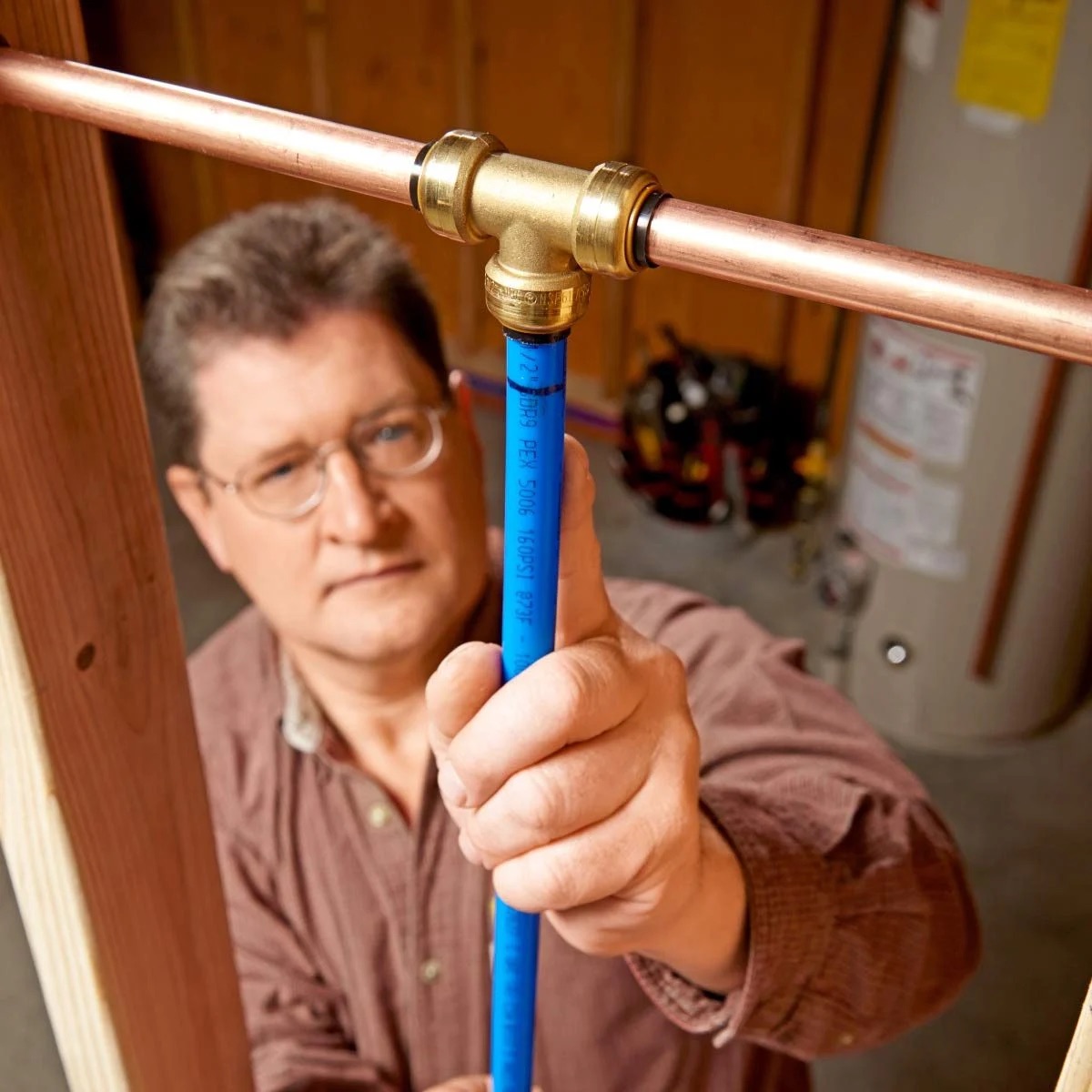
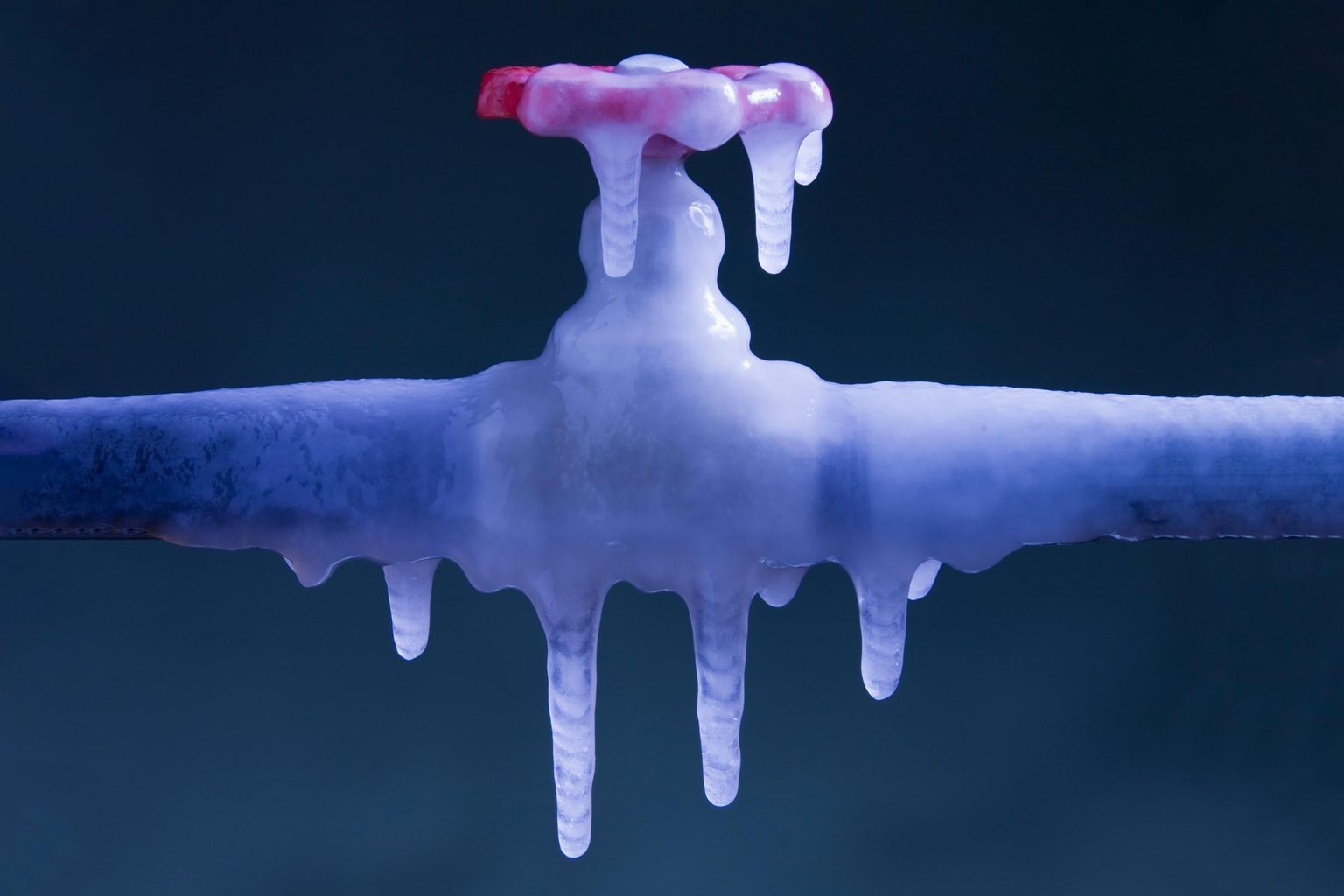
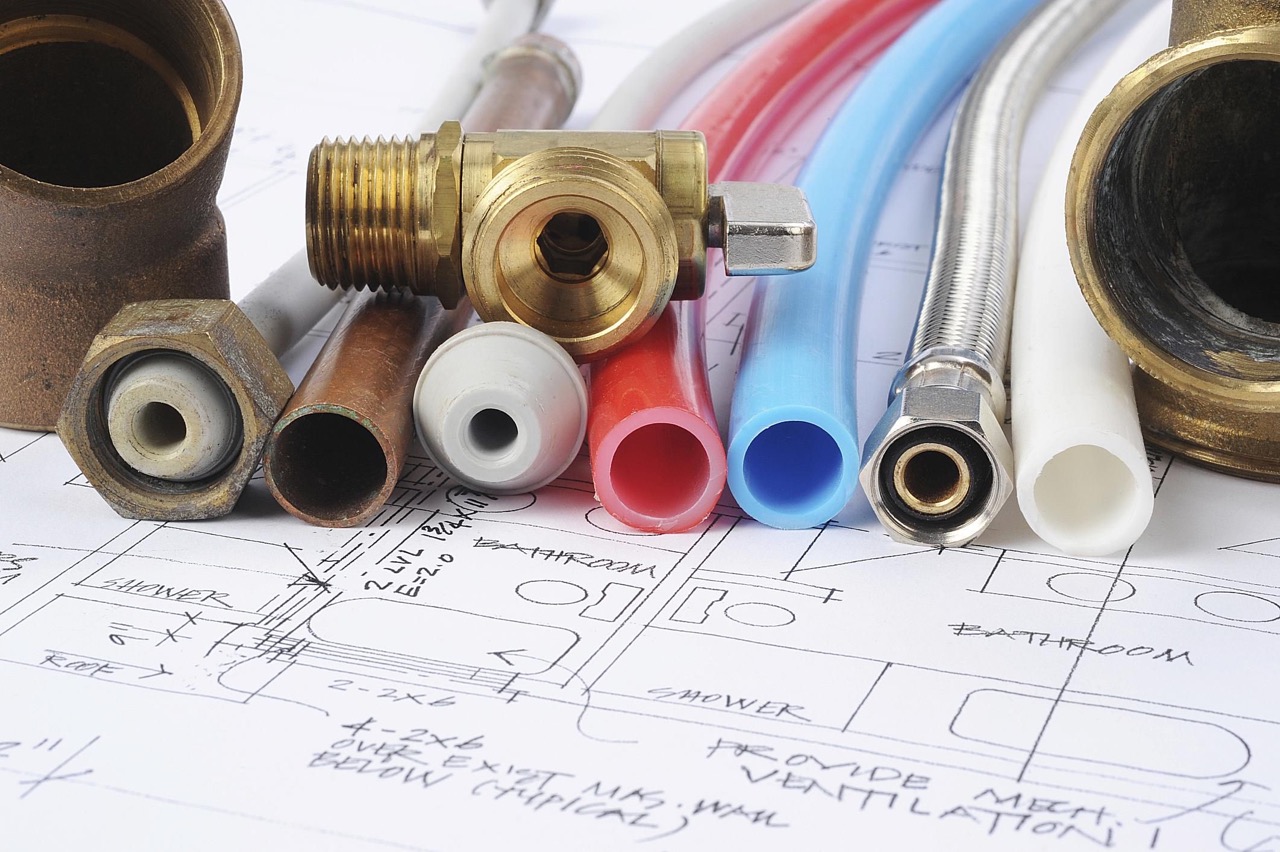
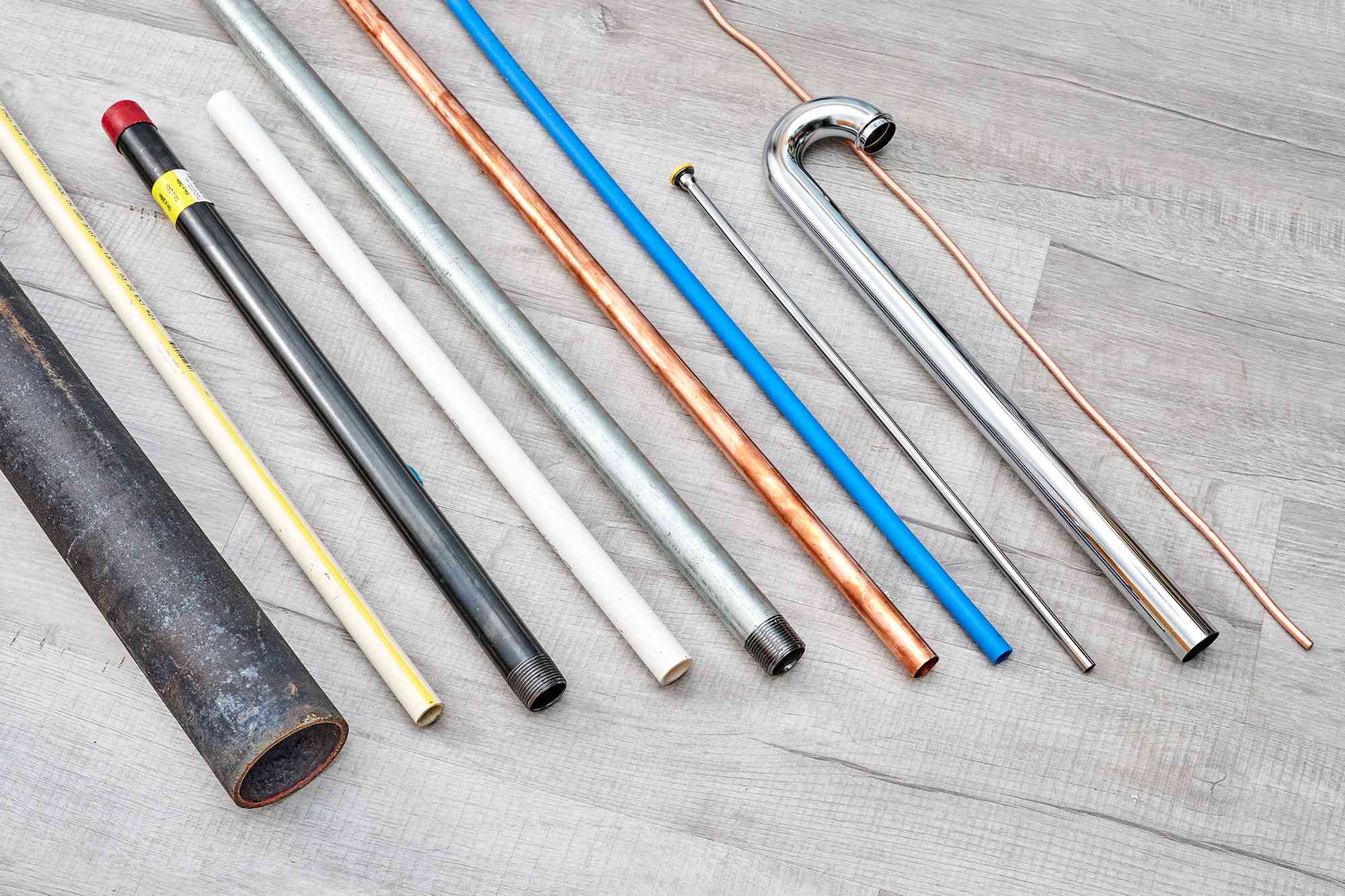

0 thoughts on “How To Clean Plumbing Pipes”